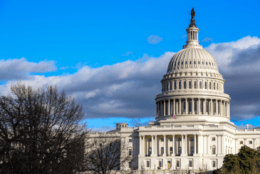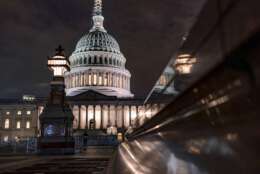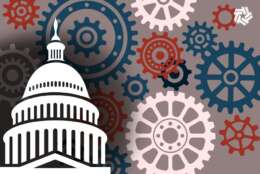Management
-
Deidre Harrison, the deputy controller, who is delegated the duties of the controller in OMB, said several cross-agency initiatives like the fraud symposium and the Joint Financial Management Initiative are helping to share best practices and lessons learned.
November 28, 2023 -
In today's Federal Newscast: Stamp prices will go up again, for the fifth time since 2021. A new IARPA program will try to expose perpetrators behind cyber attacks based on coding styles. And the Defense Department is seeking to update its acquisition regulations.
November 28, 2023 -
A proactive system of action aligns with the principles of good cyber hygiene. It ensures that organizations are not merely responsive but anticipatory, staying one step ahead of cyber adversaries. The dynamics of cyberspace dictate that agility is the need of the hour, and a comprehensive system that enables swift responses to emerging threats embodies this agility.
November 27, 2023 -
Congress is back from its Thanksgiving recess this week -- with not very much time to go before several different impending deadlines. We've talked a lot about the appropriations legislation that still needs to get done for 2024. But the deadlines for some key authorization bills are creeping up even faster. Loren Duggan is deputy news director at Bloomberg Government. He spoke with Federal News Network Deputy Editor Jared Serbu.
November 27, 2023 -
The average timeline for investigating top-secret security clearance cases was on a steady rise throughout fiscal 2023.
November 24, 2023 -
For federal agencies, hiring and digital modernization have been top of mind for the past few years and the latest agenda reinforces these priorities while urging alignment with relevant values.
November 24, 2023 -
A new proposed rule from OPM aims to offload a bit of transactional work and let the agency focus more on governmentwide human capital policy.
November 23, 2023 -
The Federal Labor Relations Authority (FLRA) has proposed several revisions to rules concerning its duties under the Privacy Act, including duties assigned to the office of the solicitor. For more on what is going on and what you need to know, Federal Drive with Tom Temin talked with Thomas Tso, FLRA's Solicitor.
November 22, 2023 -
Continuing resolutions hurt not only service members, but also civilians both at the Department of Defense and at other agencies by hurting morale and slowing new programs.
November 21, 2023 -
Reliance on a paper-based system, insufficient staffing and incomplete applications remain the three top barriers to timely processing of federal employees’ retirement applications.
November 21, 2023 -
In this new motion of navigating increased budget constraints and reduced resources, digital transformation initiatives that improve the customer experience are emerging from a nice-to-have to a must-do in today’s landscape. Now more than ever, the public sector is in need of more efficient solutions that ultimately help them do more with less and drive success now.
November 21, 2023 -
For the agency most visibly on the front lines of security, the Transportation Security Administration (TSA) in some ways is the face of the federal government. More than its technology, its people make it tick. As millions of Americans prepare to fly this holiday season, Federal Drive with Tom Temin checked in with TSA's deputy administrator, Holly Canevari.
November 21, 2023 -
The latest continuing resolution Congress passed last week avoided a government shutdown. But even if lawmakers achieve that feat again next year, on the two different dates when the CR expires, there are a lot of other ways the rest of fiscal 2024 could be messy for federal agencies and their vendors. To look into it further, Federal News Network Deputy Director Jared Serbu talked with Larry Allen, President of Allen Federal Business Partners.
November 21, 2023 -
To be a good leader, you've got to know your people. But what about knowing yourself? Emotional intelligence is more important than ever in connecting with a diverse and changing workforce. So should it be considered when picking the leaders of tomorrow? That's the stance of Bob Tobias, retired professor from American University's Key Executive Leadership program. He tells Federal News Network's Eric White, just how vital emotional intelligence is for succeeding as a leader.
November 20, 2023 -
The Government Accountability Office gets all the attention. But the Council of the Inspectors General on Integrity and Efficiency (CIGIE), also has lists of management and financial priorities for federal agencies.
November 20, 2023















